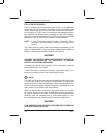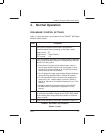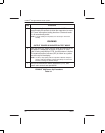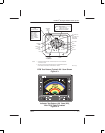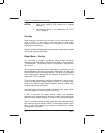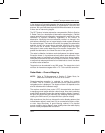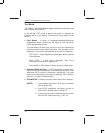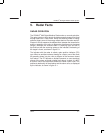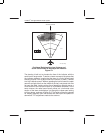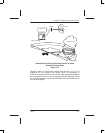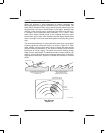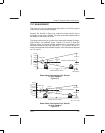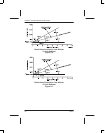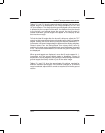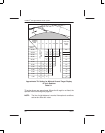
PRIMUS
R
660 Digital Weather Radar System
A28–1146–111
REV 2 5-1
Radar Facts
5. Radar Facts
RADAR OPERATION
The PRIMUS
R
660 Digital Weather Radar works on an echo principle.
The radar sends out short bursts of electromagnetic energy that travel
through space as a radio wave. When the traveling wave of energy
strikes a target, some of the energy reflects back to the radar receiver.
Electronic circuits measure the elapsed time between the transmission
and the reception of the echo to determine the distance to the target
(range). Because the antenna beam is scanning right and left in
synchronism with the sectoring sweep on the indicator, the bearing of
the target is found, as shown in figure 5–1.
The indicator with the radar is called a plan–position indicator (PPI)
type. When an architect makes a drawing for a house, one of the views
he generally shows is a plan view, a diagram of the house as viewed
from above. The PPI aboard an airplane presents a cross sectional
picture of the storm as though viewed from above. In short, it is NOT
a horizon view of the storm cells ahead but rather a MAP view. This
positional relationship of the airplane and the storm cells, as displayed
by the indicator, is shown in figure 5–1.



